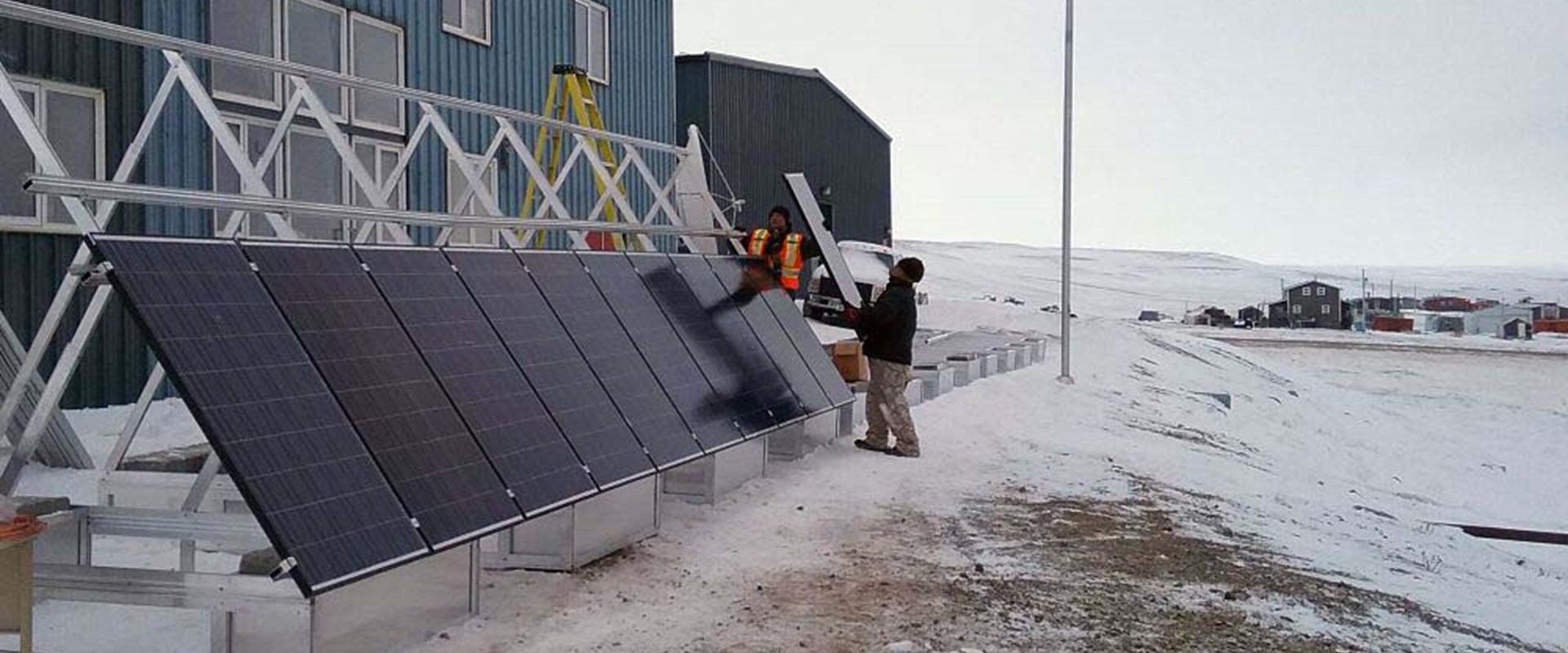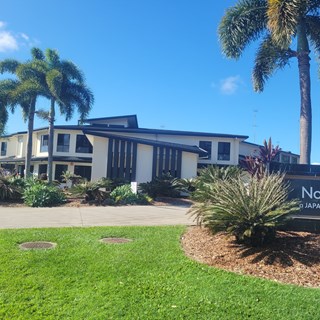
Supporting sustainable, clean energy for remote communities
Remote communities around the globe, often not connected to an urban electrical grid, typically rely on costly diesel-generated electricity.
15 December 2021
Remote communities around the globe, often not connected to an urban electrical grid, typically rely on costly diesel-generated electricity.
The cost of diesel power generation (10:1 cost above an urban grid) is quite significant to these communities.
As an example, remote communities in Canada collectively consume more than 682 million litres of diesel fuel every year - two-thirds for heating and one-third for electricity needs. Ref: Pembina Institute report - Tracking diesel reduction progress in remote communities.
In addition, the associated increases in greenhouse gases (GHGs) and negative impacts on health are prompting communities to look for better solutions. A lack of stable and cost-effective energy is often a limiting factor to the potential growth of these communities.
As a result, many remote communities have developed their local microgrids, typically based around a diesel generator. Increasingly, some of these grids are beginning to include a variety of renewable energy sources (solar/wind/tidal/battery etc.) to support their intentions to lower their electricity costs while reducing their dependency on diesel and lowering GHGs.
The addition of renewable energy sources, while having an immediate benefit of GHG reduction and energy cost savings, also introduces significant integration challenges concerning the control and optimisation of the power system.
Microgrids defined: A microgrid is a self-sufficient energy system that serves a discrete geographic footprint, such as a remote community or industrial setting, which may lack a stable connection to an urban power grid.
A microgrid must effectively control the power supply provided to the community to be a dependable electrical source, which becomes especially difficult based on the intermittent availability of renewable energy derived from renewable energy sources such as solar or wind. As well, the challenge of predicting how much power these systems will provide at any given moment (as they fluctuate) increases the complexity and scope of what the microgrid must be able to manage.
The impact of unstable energy to a remote community can be catastrophic when critical infrastructure are interrupted for even a short amount of time, for example, water purification or
emergency response communications.
We recognised this energy challenge and created an innovative solution, the BMT Smart Microgrid Controller, developed for small, remote communities. The solution utilises commercial off-the-shelf components and a series of control parameters that effectively manage the microgrid's energy optimisation. The control parameters operate as a grid controller that efficiently balances the output from each energy source to support the required loads and users of the grid.
The BMT Smart Microgrid Controller is designed to efficiently manage and integrate an unlimited number of renewable energy sources in an entirely off-grid remote microgrid. Integrating additional renewable energy sources is easily handled by modifying the control parameters versus expensive hardware changes.
In addition, instead of utilising a different custom (and costly) configuration for each community, a "standardised set of configurations" may be employed for many communities to bring the microgrid online quickly and at lower costs. This approach, combined with core operational algorithms to maintain grid stability as the generators and loads fluctuate, is destined to be a winning solution in this space.
The BMT Smart Microgrid Controller market is significant for potential customers in a remote land, island, mining, or industrial settings. The global Microgrid market exceeded USD 6 billion in 2020 and is anticipated to grow by over 27% CAGR between 2021 and 2027 to USD 33 Billion. Source: Global Market Insights.
We are well along in the development of the BMT Smart Microgrid Controller and expect to have a commercial product available in 2022.

Martin Moody is a Principal Electrical Engineer at BMT, based in Ottawa, Canada. Martin holds a Bachelor of Engineering (Mechatronics) with honors from the University of Adelaide and a Master of Engineering (Sustainable Electrical Energy Systems) with first class honors from the Technological University Dublin. He has 19 years’ experience as a marine electrical engineer.
Previously he has designed electrical systems for naval submarines and ships, rescue submarines, hovercrafts, ferries and coast guard vessels in Australia, Asia, the UK and Canada. Working with BMT, Martin has designed and tested a common microgrid controller for multiple remote communities. The controller is part of a wider task that Martin is leading to develop a common microgrid interface unit for isolated communities.

Asimina Voskaki
While we have invested effort and resources in creating flood-resilient environments, we are far from resilient if we look at the overall climate risk. How can we expand our thinking on climate risk and become more aware of the potential consequences?

Greg Fisk
How should airports protect against climate risk? Greg Fisk discusses issues surrounding climate resilience for airports.

N/A
Impacts from climate related hazards are regular occurrences and affect many in the community. Understanding the risks associated with these hazards to people, critical assets and organisations is essential.

N/A
With meticulous planning, offshore wind development projects can curtail early challenges.